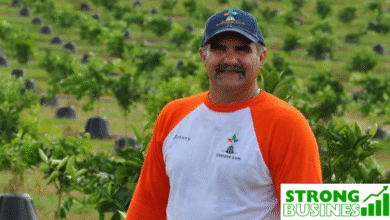Tasha Jacoby-Araujo is a name that resonates with those familiar with leadership in healthcare, advocacy for Indigenous communities, and dedication to the principles of cultural inclusiveness and systemic change. Her work is multifaceted, intersecting between health equity, Indigenous rights, community empowerment, and institutional accountability. Tasha is widely recognized for her thoughtful leadership and her unwavering commitment to making healthcare and other public systems more responsive, respectful, and equitable for all—especially for Indigenous populations.
Background and Heritage
Tasha Jacoby-Araujo is of Indigenous descent and holds a deep-rooted connection to her culture, identity, and ancestral heritage. This grounding in her Indigenous roots has profoundly shaped her perspective and career path. Her commitment to amplifying Indigenous voices within Canadian society is a reflection of her lived experience and a testament to her Tasha Jacoby-Araujo belief in cultural preservation, self-determination, and resilience.
She has often spoken about the importance of reconnecting with her roots and working to ensure that the stories, traditions, and knowledge of Indigenous communities are not only respected but also actively integrated into modern institutions. Tasha’s personal and professional journey is a living example of reclaiming space in sectors that have historically excluded or marginalized Indigenous perspectives.
Educational Journey and Early Influences
Tasha Jacoby-Araujo’s educational journey reflects her intellectual curiosity and strong sense of purpose. From early on, she exhibited a passion for learning and justice. Her academic path includes work in disciplines such as Indigenous studies, public health, and leadership. Throughout her education, Tasha sought environments that would challenge conventional narratives and foster dialogue about social equity, history, and systemic reform.
Her studies were never confined to textbooks or classrooms. Instead, they extended into community organizing, cultural advocacy, and experiential learning through working directly with people in need. These experiences helped her shape a holistic worldview, where knowledge is not just about academic achievement but about real-world impact and ethical responsibility.
Career in Healthcare Leadership
Tasha Jacoby-Araujo has held significant leadership roles within the healthcare sector, particularly in Canada. Her focus has consistently been on developing health systems that serve Indigenous communities with dignity, respect, and cultural relevance. Her leadership has been instrumental in bringing Indigenous health frameworks into mainstream practices, advocating for trauma-informed care, and pushing for accountability at institutional levels.
One of her most recognized contributions is her work in integrating Indigenous knowledge systems into hospital and health system protocols. She has led numerous initiatives aimed at training health professionals in cultural safety, anti-racism, and the historical context of Indigenous health disparities. Tasha has emphasized that for care to be truly patient-centered, it must also be culturally competent.
Her work has often bridged the gap between Western healthcare and traditional Indigenous healing practices. She is a vocal proponent of two-eyed seeing—a concept that encourages using the strengths of both Indigenous and Western knowledge systems for holistic care. Her ability to move across these two worlds with ease is one of her most valued leadership qualities.
Advocacy for Indigenous Rights
In addition to her healthcare roles, Tasha Jacoby-Araujo has consistently positioned herself as an advocate for Indigenous rights at large. Her voice has contributed to broader conversations about reconciliation, social justice, and equity. She is often called upon to provide insight on how policy can better serve Indigenous peoples, not just in healthcare but across education, housing, and justice systems.
Her advocacy is not reactive but transformative. Rather than just responding to crises, she works proactively to dismantle systemic barriers and create new structures that honor Indigenous self-governance and community autonomy. Whether speaking at conferences, advising governmental bodies, or engaging in grassroots movements, her message is clear: Indigenous peoples must lead the conversations about their futures.
Mentorship and Community Building
Another defining feature of Tasha’s impact is her role as a mentor and community leader. She has mentored many emerging Indigenous leaders, especially young women and professionals entering public service sectors. Tasha believes deeply in the power of intergenerational knowledge transfer and makes time to support, guide, and uplift those who are just beginning their journeys.
Her mentorship style is rooted in reciprocity and empowerment. She encourages critical thinking, self-reflection, and cultural pride. Tasha’s influence is evident in the growing number of Indigenous professionals who cite her as a source of inspiration and guidance. Community building, for her, is not just a goal—it is a way of life that informs everything she does.
Public Speaking and Thought Leadership
Tasha Jacoby-Araujo is a highly sought-after speaker known for her clarity, depth, and authenticity. Her talks often address the intersections of racism, colonialism, public health, and social policy. She does not shy away from uncomfortable truths but approaches them with compassion and purpose. Her presentations are often described as transformative experiences that shift perceptions and open new possibilities for inclusive action.
Her thought leadership is not limited to verbal communication. Tasha has contributed to various publications and reports that seek to improve public understanding of Indigenous issues. She collaborates with academics, policymakers, and community leaders to ensure that research and discourse reflect the lived realities of Indigenous peoples. Her ability to translate complex issues into meaningful dialogue makes her a bridge-builder across diverse communities.
Resilience in the Face of Challenges
Tasha’s journey has not been without obstacles. Like many Indigenous women in leadership, she has faced systemic resistance, racism, and moments of burnout. However, she continues to rise and push forward with grace and determination. Her resilience is a reflection of the strength of her ancestors and the collective will of the communities she represents.
She speaks openly about the challenges of doing equity work in spaces that are not always welcoming or understanding. This vulnerability only adds to her credibility, as it shows she is not immune to the very systems she works to reform. Her courage in naming injustice while still pursuing transformation is part of what makes her leadership so powerful.
Legacy and Vision for the Future
Tasha Jacoby-Araujo’s legacy is already evident in the institutional changes she has helped bring about, the lives she has touched, and the movements she has helped energize. But she is not resting on past accomplishments. Her vision for the future is one in which Indigenous people thrive on their own terms—where healthcare, education, governance, and culture are grounded in self-determination and mutual respect.
She envisions a world where reconciliation is not just symbolic but structural, where equity is not just a goal but a norm. Her work continues to challenge Canada—and other settler nations—to live up to the promises made to Indigenous peoples. With each new initiative, speech, and mentoring relationship, she moves the dial closer to justice.
Cultural Revitalization and Language Preservation
Beyond her policy and leadership work, Tasha is deeply invested in cultural revitalization efforts. She supports initiatives aimed at preserving Indigenous languages, stories, and ceremonial practices. For Tasha, these are not side projects—they are central to community wellness and collective healing.
She believes that the loss of language and tradition is a form of cultural trauma, and that revitalization is a form of resistance and restoration. Through workshops, storytelling sessions, and collaborations with elders, she supports projects that reconnect people to their roots and pass down cultural knowledge to the next generation.
Recognition and Influence
Tasha Jacoby-Araujo’s contributions have earned her respect across multiple sectors. She has received accolades and acknowledgments from professional associations, academic institutions, and Indigenous organizations. But what matters most to her is the recognition she receives from community members who feel seen, heard, and valued through her work.
Her influence goes beyond titles and awards—it is measured in the trust she builds, the systems she helps shift, and the hope she inspires. People often speak of her Tasha Jacoby-Araujo as a changemaker who listens deeply, acts boldly, and leads with integrity.
Conclusion
Tasha Jacoby-Araujo stands as a remarkable leader whose work bridges the worlds of healthcare, Indigenous advocacy, cultural revitalization, and institutional transformation. Her career reflects a profound commitment to justice, healing, and equity. Through her leadership, countless individuals and institutions have been challenged to grow, reflect, and reform. Her story is one of vision, resilience, and impact—a powerful example of what is possible when cultural pride, personal dedication, and professional excellence come together.





